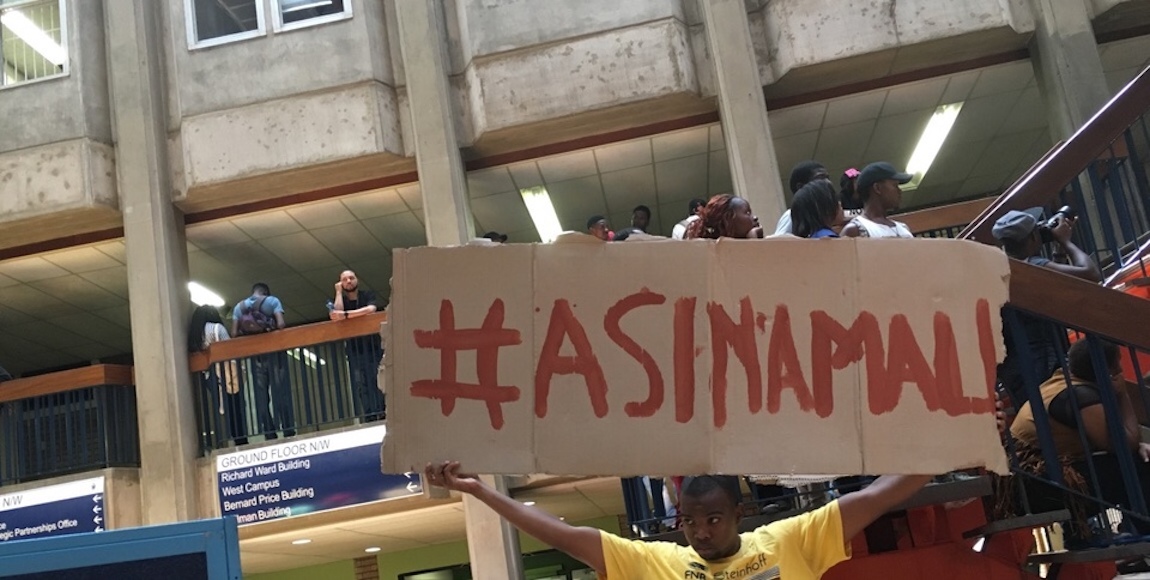The #FeesMustFall protests highlighted that there are many students and families who are struggling to fund their university tuition. Some students, unable to get NSFAS loans, or bursaries and scholarships have taken up crowdfunding to raise money. A new kind of crowdfunding platform for South Africa was publicly launched last week. Feenix, backed by Standard Bank, is providing university students with a funding alternative.
Crowdfunding is a relatively new phenomenon of fundraising, where a donor beseeches the wider internet community to support their cause. University of Cape Town student and gender activist Wanelisa Xaba is using crowdfunding to pay her Master’s fees. Queer activist and one of the first Africans with a disability to be accepted into Oxford University, Eddie Ndopu, used crowdfunding to cover outstanding admissions cost.
But Feenix isn’t a traditional crowdfunding platform. “[It] is tailor made for funding South African students. It is a Public Benefit Organisation, so all funds donated toward students on Feenix are tax deductible,†James King, communications manager for Feenix, told The Daily Vox. We found out from him how it works and how you can get onto the tuition funding platform.
How Feenix works
Feenix was created to help South African students from households that earn less than R600 000 per year (the so-called missing middle), who want to attend any public university in the country. “Students looking to receive funding for their tertiary education make a profile motivating for their funding on our website,†said King. They can create a video or a written profile on themselves. They will also need to submit a fee statement from their university.
“We validate and check all students’ submitted details are correct and accurate,†said King.
People or companies looking to fund students can go through student profiles to find a student whose story they connect with and are willing to make a contribution to. They can then either donate enough money to cover the whole outstanding amount, or a portion of it, said King. Funding is only permitted for a single year of tuition.
According to King, Feenix has raised around R250 000 since 5 June 2017. They have 200 students registered to the platform, and 150 people and ten companies registered as donors. So far, ten students have received funding.
For companies that aren’t too fussed about where their funding goes, there is a Feenix Pool. Companies put money in a pool and it is distributed to students whose demographic falls into the socio-economic development criteria of the B-BBEE charter. Businesses help develop a student while improving their Black Economic Empowerment score cards at the same time. “We have developed an algorithm that sorts through our database of students,†said King. “We allocate funding according to the list and produce a report for funders who contributed to the Pool that they can have their spend audited and verified.â€
The money paid by donors is managed by Standard Bank, the main sponsor of Feenix. They confirm the outstanding amount and directly pay it to the university. This means – according to Feenix’s ‘how it works’ video – that they don’t charge a high administration fee, only 5%.
How a funder chooses a student
King said there are many factors that influence which student is chosen by a funder. “We have found that students with complete and compelling profiles receive more views, and are more regularly funded – but it is not the only thing funders look at. Some funders are only interested in funding students from their home town, or who went to the same university as the funder.†So it’s useful to include that type of information as well.
Feenix is only available through their website to public universities, as it is in its first phase. “We hope to expand the platform in the future and are working on innovative ways to increase opportunities for access with that expansion,†said King. They have a three-year roadmap but, King said, “[we] plan on being around for as long as it takes to make a difference.â€
However, the exorbitant prices of data makes accessing Feenix expensive, especially for students that fall in the lowest income bracket. The ‘how it works’ video doesn’t have any text, which alienates those who don’t have enough data to blow on a two-minute video.
What makes the Feenix crowdfunding platform innovative is that it is specifically made for South African students and targets the missing middle. Finding alternatives to limited bursary options, exclusive scholarships, and the overburdened and underperforming NSFAS is a great initiative that needs more buy-in from the public. It’s only been open to the public since Tuesday, but we’ll be tracking whether it manages to make a dent in the university fee crisis.









